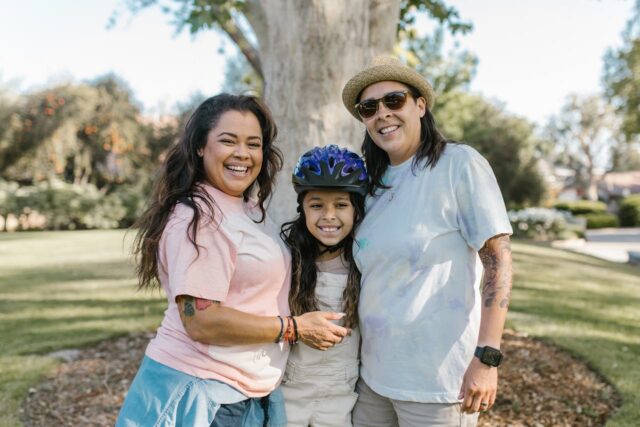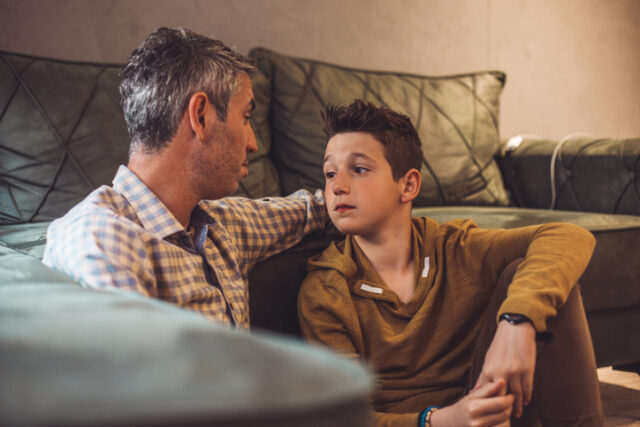Nature vs. nurture has been a major debate for decades, but the truth is that there are things parents do to influence their kids’ personalities.

If you don’t want your child to turn into a narcissist, it’s important that you don’t encourage the sorts of behaviours that lead to that personality type. Here are some mistakes many parents make that often lead to egocentric, self-centred kids.
1. They’re always telling their kid they’re the best thing since sliced bread.
 Source: Unsplash
Source: Unsplash Look, it’s great to boost your kid’s confidence, but there’s a fine line. Constantly gushing about how amazing and special they are can give them an inflated ego. Try praising their efforts instead of just their natural talents. That way, they’ll learn the value of hard work and won’t expect a standing ovation for just showing up.
2. They cave in to every “I want” whine.

We’ve all been there — sometimes it’s easier to just give in to avoid a meltdown. But if this becomes the norm, you’re setting your kid up for a rude awakening when the real world doesn’t bend to their every wish. It’s okay to say no sometimes and let them learn to deal with disappointment.
3. They swoop in to save the day, every time.

It’s tough to watch your kid struggle, but being a constant superhero isn’t doing them any favours. If you’re always there to fix every problem, they won’t learn how to handle setbacks on their own. Let them face some consequences (within reason, of course) — it’s how they’ll learn to bounce back.
4. They treat their kid like they’re God’s gift to the world.

Sure, your kid is special to you, but acting like they’re more important than everyone else? That’s a recipe for entitlement. Teach them that everyone has value, not just them. It’ll help them form better relationships down the road.
5. They use their kid to live out their own dreams.

We all have things we wish we’d done differently, but pushing those unfulfilled dreams onto your kid isn’t fair. Let them find their own path. Your job is to support them, not turn them into a mini-you.
6. They’re allergic to setting rules.

Look, nobody likes being the bad guy, but kids actually need boundaries. Without them, they might grow up thinking the world revolves around them. Setting some ground rules isn’t mean — it’s teaching them how to play nice with other people in the long run.
7. They talk badly about people in front of their kid.

We all have those moments where we need to vent, but constantly putting other people down in front of your kid? Not cool. It teaches them that feeling superior is the way to go. Try to model kindness instead — it’ll serve them better in life.
8. They forget to teach the whole “walk a mile in their shoes” thing.

Empathy doesn’t always come naturally — sometimes kids need a little nudge. If you’re not encouraging them to see things from other people’s perspectives, they might struggle to connect with other people later on. It’s worth taking the time to chat about feelings and different viewpoints.
9. They make love a reward for good grades or winning the game.

We all want our kids to do well, but if they only feel loved when they’re acing tests or scoring goals, that’s a problem. Make sure they know you love them, full stop — not just when they’re bringing home trophies.
10. They’re always comparing their kid to other kids (in a complimentary way, of course).

It might feel good to brag about how your kid is better than the neighbour’s, but it’s setting up a weird competition. Instead of always needing to be “the best,” teach them to appreciate their own progress and celebrate other people’s successes too.
11. They bubble-wrap their kid from any kind of failure.

Let’s face it, failing sucks. But it’s also how we learn and grow. If you’re always stepping in to make sure your kid never loses or messes up, you’re not doing them any favours. A little disappointment now can help them handle bigger challenges later.
12. They’re all about the Instagram-perfect life.

In a world of filters and likes, it’s easy to get caught up in appearances. But if you’re always stressing about looking good and being popular, your kid will pick up on that. Try to show them that what’s inside matters more than how things look on the outside.
13. They brush off their kid’s feelings with a “you’re fine”.

We’ve all been there — your kid’s upset over something that seems silly to you. But dismissing their feelings can backfire. Take a moment to listen and validate their emotions, even if you don’t agree. It’ll help them understand their feelings better as they grow up.
14. They treat their kid like their personal therapist.

Life can be tough, and sometimes we need to vent. But dumping adult problems on your kid isn’t fair. It can make them feel far too grown-up, far too soon. Find another adult to chat with about the heavy stuff.
15. They never admit when they’re wrong.

Nobody’s perfect — not even parents. If you never own up to your mistakes, your kid might think they don’t need to either. Showing them how to apologise and make things right is a valuable life lesson. Plus, it might just make you feel better too!




